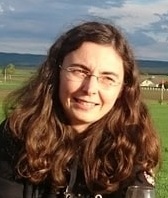 |
Donata Romizi (Austria) – PhD, Assistant Professor at the Department of Philosophy of the University of Vienna; since 2014 she has developing, coordinating and directing a postgraduate program on Philosophical Practice at the Postgraduate Center of the University of Vienna.
Oscar Brenifier’s Philosophical Practice: a critique (Lecture) In contrast to immediate and unconditional refusal or embracement, a critique in the Kantian sense of the word is a differentiating and careful procedure of assessing scope and limits – in this case – of Brenifier’s Philosophical Practice. In light of some texts of his describing the philosophical background of his practice and some videos showing the practice itself, I would like to initiate a fair reflection and discussion of Brenifier’s approach, considering in particular the following aspects: the conception of philosophy it implies, the relationship (or gap) between Brenifier’s theory and practice of Philosophical Practice, the blurred boundary between philosophical and psychological issues in his practice. In light of this appraisal, some questions and problems will be raised that do not only concern Brenifier’s approach, but also Philosophical Practice in general. |
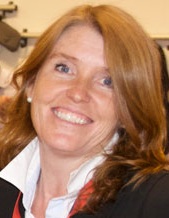 |
Guro Hansen Helskog (Norway) – Associate professor, University of South-Eastern Norway, the main author of Dialogos, an approach to the practice of philosophy in education published as a series of six books in 2006-2009, project leader and author of Fortsatt Foreldre (Perpetually Parents), a psycho educative program developed as part of her work at Modum Bad Psychiatric Hospital. The program involves philosophical practice elements, and is now offered at all 60 family offices in Norway through the Norwegian Directorate for Children-, Youth- and Family Affairs.
What is the Dialogos approach? (Workshop) The Dialogos approach to philosophizing towards wisdom was initially developed by Guro Hansen Helskog as a way of facilitating Bildungoriented pedagogy from the mid-1990`s on. Joint investigation of phenomena implied in the Art of living well is at the core of the Dialogos approach, and during a Dialogos workshop we work on philosophical ideas and concepts from logical, emotional, experiential, existential and spiritual starting points and perspectives. Socratic dialogues, guided imageries, pro-con argumentation, philosophical walks, mind-body exercises as well as text- and emotion based dialogues are among the exercises included. It is a form of pedagogical philosophical practice aimed at nurturing our inner lives and relationships by searching wisdom together from different angles. What might be the long term fruits of philosophizing the Dialogos Way? A holistic Dialogos process not only promotes self-knowledge, flexibility of mind, inner peace and understanding of our relations to others and to the world. It also creates flexible relationships and deep connection between people, thus bridging world divides. This is especially important in culturally and religiously diverse contexts where misunderstandings and conflict can arise simply due to differences for instance in habits, values or beliefs. It is also of importance to those of us who live with or work with others, whether children, youth or adults, and whether in families, communities, in education and in organizations. That means: Everybody. Dialogos as free space A Dialogos workshop is thus a school in the classical sense of the word: It is a free space where people can contemplate and reflect together with others upon questions of importance to them, personally as well as professionally. Through philosophizing the Dialogos way, eyes might open. Consciousness might expand. Our being might flourish. In the long run our lives might even become increasingly meaningful, and thus better. |
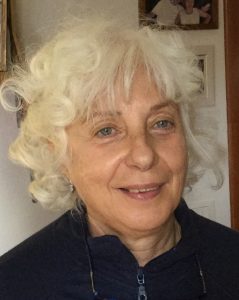 |
Patrizia Cipolletta (Italy) – Associate Professor of Moral Philosophy, Department of Philosophy, Communication, and Performing Arts at the University of Roma Tre
Practical philosophy and philosophical practices (Video-Presentation) In the video interview, author will present the 2nd degree university Master in “Philosophical Counseling”, established at the University of Roma Tre in 2006. Further, the video also illustrates the activities of the association “Agàpe Scuola. Formazione per Consulenza filosofica e Pratiche filosofiche” (School Agàpe. Training in philosophical counseling and philosophical practices) within the university Master. As part of the Board of this association, author will describe the philosophical practices involved in the Master’s courses and lessons. Her report will be particularly focused on the importance of the dialogue between the practitioners that daily deal with the classical and grounding texts of the philosophical tradition, moved by both historical and linguistic rigorous approaches, and the counselors, who listen, in their philosophical practices, to the urgent questions that arise from the everyday life of society. In such a mutual exchange, the practical approach to philosophy allow us, on the one hand, to constantly go back to the sources of the philosophical wisdom as well as to merge into the dialogue between philosophy and sciences, and, on the other, the philosophical research can hearken the problems of the plurality, which inhabits modern societies, reenacting the ancient philosophical practice that always strives for the good and the flourishing life. The Master’s training programs stress a difference between practical philosophy and philosophical practices, which is deemed necessary for a fruitful dialogue, with the hope that these two attitudes can walk different paths, but can be united in their purposes. The video interview will also explain how this productive dialogue has been promoted for more than a decade, and how author herself has been active in different roles as a professor at university, and as philosophical counselor, too. Particular emphasis will be put on how her research has evolved including the philosophical practices in the areas of interest and how, in turn, the philosophical research had enriched the philosophical counseling. These same topics can also be discussed in a round table taking place during the conference. |
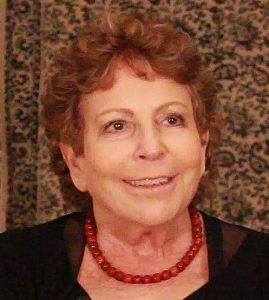 |
Ora Gruengard (Israel) – PhD, Shenkar College (Ramat Gan), the President of the Israeli Association for Philosophical Practice (with Lydia Amir).
Can philosophical counseling be detached from politics? (Lecture) In this lecture I propose to challenge the position that philosophical counseling should be detached from politics and wonder whether it can. I examine seemingly anti-political arguments and explore different meanings of ‘politics’. I maintain, despite my awareness to the history of misuse of philosophical rhetoric in the use of political propaganda and indoctrination and cases of dishonest compliance of philosophers with oppressive regimes, that any philosophy that deals with knowledge, action, life and morality has political aspects, and argue that such aspects may and sometime should come to the fore in philosophical counseling as well. I therefore stress the importance of meta-philosophical dialogues among philosophical counselors about the complexities and risks of discussing such issues in counseling sessions. What would you do if Hamlet were your counselee? (Round table discussion) What would you do if Hamlet (Anna Karenina, Socrates….) were your counselee? In this roundtable philosophical counselors will exemplify their approaches in the case of a famous fictional or a real past figure, whose problem situation, worldviews and acknowledged dilemmas are documented in literary of historical texts (information that is not shared by participants and audience in a case of a living volunteer who presents a problem for demonstrative purposes). The aim, however, is not just to expose alternative approaches, but to estimate them in at least two ways: First, to examine thoroughly their relevance to the concerns of the counselee in her problem situation from her perspective (an issue that is evaded when the polite volunteering counselee is more eager to please the demonstrator than deal with a real concern) and then explore critically not only how it can help but also whether it can cause harm (a matter of moral responsibility to the counselee and to others that is too often avoided in expositions of alternatives approaches ). We hope to promote thereby a debate about the issue of understanding the concerns of the counselee from her perspective and the plausible interpretation of given information about it, and relate to controversies about the rationality and morality of counseling. Did philosophy ever mattered to me? (Workshop) In many workshops participants are trained for counseling by learning the art of questioning and other methods and procedures. I believe that philosophical counseling should be based on the counselor’s personal understanding of philosophy, and should not be done if the counselor does not sincerely believe that philosophizing can make a difference. The training should therefore start with the exploration whether and in what sense the trainee has ever experienced that philosophy mattered to her and helped her cope with an intriguing issue. Feed-backs from other participants and listening to their experiences from their personal perspectives may help her become aware that what worked for her will not necessarily work for others. Comparisons and discussions should help her formulate, tentatively, her own approach and understand better which knowledge and expertise she still has to acquire in order to do the job of counseling in her own way, and yet do it a philosophically, with honesty and moral responsibility. I expect to get feed-back on my approach to counseling and training, which would enable me to try to improve it. |
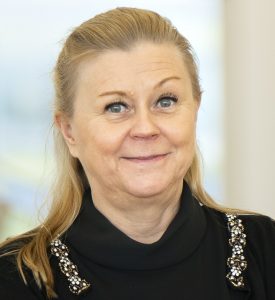 |
Pia Houni (Finland) – PhD, adjunct professor, University of Tampere, philosophical practitioner, shared reading facilitator, writer, president of Finnish Philosophical Network.
Creativity and Truth (Workshop) The workshop is art-based philosophizing where we are going to study the topic by doing some art activities and constructed a philosophical question for the dialogue. In my experience, art-based activities can be an ice breaker or a shortcut to open people’s minds to wonder, make questions, start philosophizing together. Art activity can also open some emotional aspects and build a bridge of dialogue between us and philosophical understanding. This all might lead us forward to deeper self understanding. Philosophical Practice and Social Responsibility (Lecture) In the open lecture I will ask what kind of social responsibility people have in philosophical practice activities? With this question I am approaching the idea of capability, opportunity, equality and micro-ethics. Today, it is more important to understand micro-ethics, because we are facing a different kind of people and we, as philosophical practitioners, should be awake and sensitive, but at the same time to keep hold of critical thinking. |
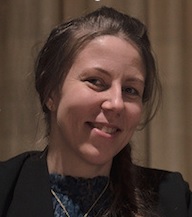 |
Anu Virtanen (Finland) – a doctoral student in philosophy at the University of Jyväskylä (Finland). In her PhD research she studies self-cultivation through existential ruptures in the context of philosophical consultations. In addition, she works as a researcher in a project that studies socratic dialogues in Nelson-Heckmann tradition as a way to facilitate ethical competence in sustainability.
Creativity and Rationality – Art-based Socratic Dialogue (Workshop) In this workshop we will working The workshop is art-based philosophizing where we are going to study the topic by doing some art activities and constructed a philosophical question for the dialogue. In my experience, art-based activities can be an ice breaker or a shortcut to open people’s minds to wonder, make questions, start philosophizing together. Art activity can also open some emotional aspects and build a bridge of dialogue between us and philosophical understanding. This all might lead us forward to deeper self-understanding. Nelsonian Socratic Dialogue as an Ethical Practice (Lecture) In this lecture we will discuss what are the valuable ends for philosophical practice in general, through analyzing the practices and ends of one specific philosophical practice namely Nelsonian Socratic dialogue. We approach Nelsonian Socratic Dialogue from the perspective of self-cultivation. We understand self-cultivation to be a process of developing one’s capacities through one’s own efforts and with the aim of moral transformation towards a good or harmonious life. To understand how Socratic dialogue can promote self-cultivation, we will examine the theoretical background of the Nelsonian tradition. We will discuss some of the values and normative ideals this way of a dialogue presupposes and passes to the participants, i.e what kind of ethical practice does it promote. We want to understand, for example, the role of the quest for truth for the ethical practice and how does this truth relate to other Platonic virtues, i.e. the good and the beautiful.
|
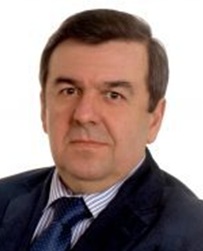 |
Vasile Hațegan (Romania) – PhD in Philosophy, West University of Timișoara. He has a PhD in Philosophy and he is researcher at the West University of Timișoara and a practitioner in Client Counseling recognized by APPA. Now, he is also President of The Professional Association of Philosophical Counseling and the Ethics from Romania and his work is promoting a new profession, the philosophical counselor.
Philosophical meditation, a practical instrument for leadership development (Workshop) The workshop present to the interdisciplinary links that get attention to the meditative practices as part of the philosophy put into practice, from the individual level to groups or organizations. Looking from the point of view of the areas in which it can interact, we refers especially to the modalities of applying the philosophical meditation, as an important instrument of the philosophical practitioner, who can interact with the leader of the organization, in the new process of the philosophical consultancy offered to the manager or the leader of a company. The workshop present the concept of philosophical leadership, where the leader will learn the meditative state for the realization of a meditative application of philosophical type, conducted by a specialist, who using the specific elements of the meditative exercises used in ancient times by philosophers, and which can be brought in the current context of philosophical counseling, as a form of a useful philosophical practice for a managers, with benefits for both parties, both for the practitioner and for the leader. |
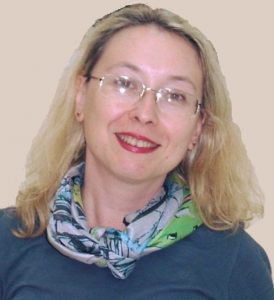 |
Gulnara Shalagina (Russia) – Candidate of Philosophy, Associate Professor, Kazan National Research Technological University.
Practical philosophy and philosophical practice: intersection paths in informal education (Interactive presentation in the TED style) In postmodern society, the parameters of educational activity are changing. Intellectual culture is experiencing a takeoff associated with the dominance of the service sector, the interpretation of spirituality as a means of production, the demand for happiness as a resource state of the creator of intangible products, the precariatization of intellectuals, the liberalization of individual entrepreneurship, the transformation of professions, the demand for versatility, and innovative ideology. Alternative, non-institutional forms of socio-humanitarian knowledge are activated, which are interpreted as informal education. These are hybrid popular science, educational and entertainment forms, aesthetized scientific projects (philosophical festivals), philosophical schools of wisdom, trainings, self-development studios, ethical retreats and rational dojos, other phenomena that arose during the dedifferentiation of practical philosophy (ethics), psychological counseling, aesthetics and new religiosity. The conditions for the existence of these forms of humanitarian activity are “third places”, new urban postmodern spaces: cafes, anticafe, coworkings, lofts, parks, squares, phenomena associated with post-industrial urban trends. The demand for creativity, charisma among small entrepreneurs, self-employed, artists, freelancers, whose success is associated with personal achievements, is great. A special sphere of spiritual production has formed with the leading role of ethics. The philosopher-practitioner offers a life methodology, principles, postulates, the possibility of an informed choice of a client, responsibility for a specific person and for humanity, treats a client as a conscious one with existential requests. Liberalization of the economy provides additional opportunities for the development of ethics and philosophical practice in the sector of informal education. |
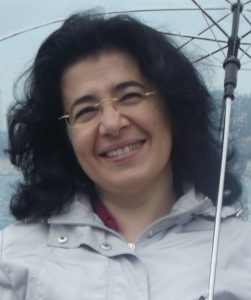 |
Konul Bunyatzada (Azerbaijan) – Prof.Dr., Correspondent Member of the Azerbaijan National Academy of Sciences; Head of the Department of Islamic Philosophy
Sufism as a method of Philosophical Counseling (Presentation) Sufism is not just mystical rituals. It is a process of cognition of the human beings based on their spiritual practice. It will help them to cognize themselves and rely on themselves. It will make them more tolerant and stronger in their daily life. Sufi method offers to use the irrational practice. It is not isolation from the society. It is a using of power of Soul in daily life. It is an improvement of rational knowledge by irrational one and a spirit’s practice and transition to another – the third – dimension. Faith obtains a very strong power and it can be used as a motivating force and a source of infinite energy. It is a philosophical counselor who should be a guide knowing how to discover this power and to direct it. We substantiate the fact that the achieving of spiritual power and knowledge during this process – ma’rifat – should complete the rational thinking. Every problem in the life is a disagreement between the mind and the soul. The Sufi practice can return the equilibrium between them. The stages of Sufi practice help to stand face to face with soul and consider the problem coming from the inner world. The Sufi stages of philosophical counselling are observation (murāqabah), nearness (qurb), fear or love, hope, intimacy (uns), tranquility (itma’ninat) and certainty (yaqin). The Sufi thinkers consider yaqin a basis of all states as well as all of them are beginning from it and coming to an end here. |
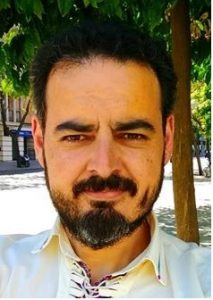 |
José Barrientos Rastrojo (Spain) – Doctor of Philosophy, Professor, University of Seville Philosophical Practice in Prison: BOECIO Project or Enlarging Philosophy by means of experiential workshops with belittled people (Lecture) BOECIO is the first Research Empirical Project funded by the European Union and based on more than 1,000 philosophical and experiential workshops performed in European and American countries. BOECIO is grounded on three pillars: (1) to accomplish an empirical research on the efficacy of Philosophical Practice, (2) to work on empirical workshops and (3) to work with people at risk of social exclusion (inmates). First, the empirical research is built on a sample of more than 600 inmates (from American and European prisons) and more than 1,000 philosophical workshops. Second, workshops are founded on the idea that to attend a philosophical session is similar to visit in a gym. Therefore, we need to train (ascesis) by means of several philosophical exercises. BOECIO contains 22 sessions that explain and train in those practical and theoretical routines. Third, Philosophy has despised several kinds of people for a long time, for example, women, inmates, children, indigenous and so on. We just need to read who wrote main philosophical treatises or where it is taught philosophy. The recipient of philosophy (and philosophical practice) has been a well off person: students from colleges and universities or from schools with students coming from medium-high income families (despite there are some exceptions as Excallibur project by Feary). This situation can turn PP in a field for well-off people, it can make invisible some people and, at the end of the day, it can be part of the affluent system. Therefore, a critical thinking approach or a problem-solving approach is a risk for a ‘normalizer’ Philosophical Practice but a PP develops with prosperous counselees could be defending the same role for Philosophical Practice. BOECIO works with inmates people and DIÓGENES is a second project who works with poor elders and kids (in America and Europe). Our proposal aims to explain how we are articulating both projects. Furthermore, it will explain that those projects are a critical stance against systematized philosophies in Capitalism. |
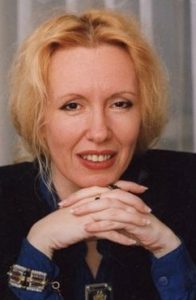 |
Lydia Amir (Israel) – Professor of Philosophy, President of the Israel Association of Philosophical Practice, lecturer at Tufts University (Boston, USA).
The Human Condition: The Tragic Sense of Life in Philosophy and Its Practice Prima facie philosophy deals with the human condition. However, when the tragic sense of life whether gained through a personal tragedy or a philosophic understanding, is at stake, the capacity of philosophy to recognize it and effectively address it is considerably reduced. While it is true that philosophers did and should act as doctors in the presence of the sick, this has been so at the price of offering rational consolations that are far from being helpful, unless one is Socrates or a Stoic sage. This has been the claim of such varied philosophers as Michel de Montaigne, Leon Chestov (Shestov) and Harold Bloom, based on their own experiences of illness, terror, and old age. While Greek philosophy begins in wonder, Kierkegaard argues that Christianity begins in despair, and more recently, Simon Critchley adds that the true beginning of philosophy is in disappointment. While the absurd was initially defined by Kierkegaard as the domain of faith against the realm of reason, the atheist philosophies of the absurd reached new peaks of absurdity by retaining the term while renouncing the faith it pointed to, leaving unclear why the human condition is absurd and bordering on bad faith through gesturing toward hidden mysticism. Philosophy is almost averse to the tragic sense of life and most of those of adopted this stance turned into religion. Considered “sick souls” by George Santayana and defended by his contemporary William James as purveyors of truth in danger of persecution, it is not clear what philosophy can or should do about those plagued by the tragic sense of life. As existential questions are amongst the non-controversial problems that philosophical practice addresses, the lecture addresses the tragic sense of life, and asks, what is the power of philosophy in its practical form as philosophical practice in relation to the tragic sense of life and the threats it represents to finding meaning, to the possibility and desirability of happiness, and often enough, to life itself? |
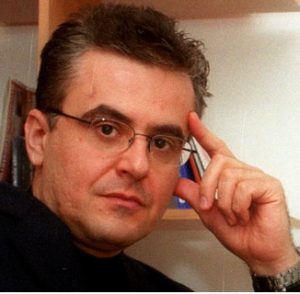 |
Aleksandar Fatić (Serbia) – PhD, Full Professor, Institute for Philosophy and Social Theory, University of Belgrade. PhD in Philosophy, Australian National University, Canberra, 1996. Project director and Professor, Institute for Philosophy and Social Theory. President, Serbian Association of Applied Humanities. Author of Virtue as identity: Emotions and the moral personality (Rowman and Littlefield, 2016) and numerous other titles. Full details at: https://aleksandarfatic.net and www.etika.edu.rs
Language and intentionality in psychodiagnostics and psychotherapy (Lecture) The lecture will summarize key insights with regard to the role of intentionality in Brentano’s and Searle’s meaning of the words in understanding modern positivist psychodiagnostics and its pitfalls. It will elaborate on the practicalities of establishing initial contact with clients by using language and language games as the initial context. The lecture will pinpoint some of the Lacanian views of language as the medium in which ‘the subconscious is already dissipated’ and discuss potential ways in which these theoretical views can be put to practical application. |
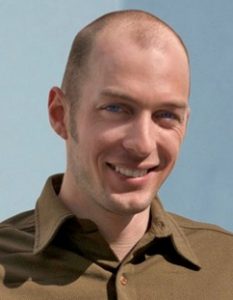 |
Michael Noah Weiss (Norway) – PhD, associate professor at the Department of Educational Science at the University of South-Eastern Norway. He has a PhD in philosophy, edited “The Socratic Handbook” and was holding the position as vice chairman in the Norwegian Society for Philosophical Practice between 2015-2019.
“Know thyself” – a guided imagery (TED style presentation) Imagery exercises have long tradition in philosophy (see i.e. P. Hadot). In this TED talk a short guided imagery on the Socratic “Know thyself” (gnothi seauton) is presented and carried out. This imagery investigates the topic of self-knowledge in a practice-oriented and experiential manner and the audience can participate actively interest exercise or just listen to it passively. The purpose of this session is to get to know a slightly different exercise for philosophical practice and to philosophize by means of associative and creative thinking. |
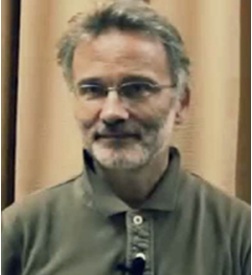 |
Giancarlo Marinelli (Italy) – Executive Director SUCF (Scuola Umbra Counseling Filosofico).Trainer Supervisor SUCF and Master in Philosophical Counseling from university ROMA TRE.
The our inspiring and vital ideas (Workshop) In philosophical practice, the “practical part” is likewise the outstanding moment of our philosophical perspective. I’ve created this exercise to show, through 7 steps, how in our experience ideas are more relevant than both sensations and thinking. The participants are requested to recollect inspiring and vital ideas from two moments of their life: one from the childhood, one from the teenage years and his youth. Initially the first two steps are dedicated to let the memories flow from the participants minds. This operation is leaded by the facilitator who invites the group to focus only on personal situation in which they felt being “activated” on their energies and resources. So the participants are demanded to focus on two moments in their life where they felt some kind of well-being originated by a deep connection between their mind and the moment they were living. At the end of each recollection of the positive memory, the participants should transcribe in a notebook the most relevant ideas that lie behind this two moment of deep self realization. In the following step the participants should pay attention to find common elements through all the two experiences: the general idea. After that all the group members are asked to elaborate a personification of these general ideas. The aim of the personification is to create an iconic representation that is a intensification of the individual character of every idea. Afterwards, all the participants have to set up a dialogue with the representation they’ve created. They have to interact directly with their own “symbol” proposing it an issue they’re experiencing in order to figure it out. The final step is about elaborating a feedback to the problem. At the very end of the exercise all the members of the group should share freely their experience one another in particular about the last two steps of the workshop and about the common elements of ideas present in every participant (the idea of the community). |
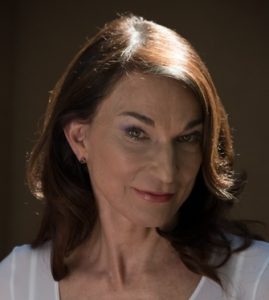 |
Shanti Jones (United States) – Ph.D., Transpersonal Psychology, Institute for Transpersonal Psychology. Certified Philosophical Counselor in Private Practice. Teacher of Character Development and Emotional Intelligence in the public schools.
A Surprising Use of Philosophy: Empowering a Teen-ager to Become the Subjecty of her Life (Lecture) This paper presents the surprising story of successful philosophical counseling with a troubled teen who was cutting herself. I say “surprising” because nowhere is philosophical counseling recommended as a therapeutic approach to adolescent cutting. Utilizing a practical approach to philosophical counseling aimed towards the highest good, elements of phenomenology, existentialism and pragmatism were drawn upon, which enabled the client to become aware of what was meaningful to her, to become the subject of her life, and to flourish within it. The client and I made effective use of philosophy to help her reflect on herself and her life, to help her to stop hurting herself, and to become a budding philosopher. To achieve this end, the use of dialogue, reflective thinking, decision making skills, dream analysis, and parental coaching were also employed in the course of eighteen sessions conducted over less than a year. The client was given the opportunity to evaluate her own judgments, to stand back from her harmful behaviors, and to learn how her desires could be directed to the pursuit of her own good rather than toward her destruction. She acquired an ever-increasing degree of independence in practical reasoning, and a sense of herself as an independent person with agency. Mis-measure for Measure (Lecture) In order to succeed in one’s intellectual endeavors, a person needs to have a proper assessment of their epistemic strengths and weaknesses. As philosophical counselors, we have most likely encountered clients who either do not have an appreciation of what they can achieve, or of what is beyond their grasp. They might be either timid and servile, or exhibit hubris and superbia. Either way, they do not experience proper pride. As a result, they are not able to set realistic goals or to make appropriate choices, which can result in various epistemic harms. These kinds of mis-measures of the Self are very common. The problem is, how do we help our clients to recognize and assess their mismeasurements, as well as help them to achieve the proper pride all human beings have a right to? How do we help them to change their attitudes towards themselves? |
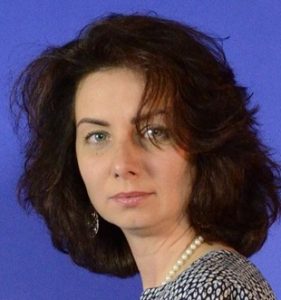 |
Natalya Artemenko (Russia) – Associate Professor, Ph.D., Associate Professor, Editor-in-Chief of the international journal Horizon. Phenomenological studies
Practicing self and / or “self-care”: from the antique epimeleia heautou to the subject of trauma (Lecture) What kind of “self-care” does philosophy from ancient times to the present day? It is, first of all, about the method of establishing relations with oneself, with one’s own “I”. But what does it mean: to enter into a relationship with oneself, to attend to one’s own existence as one’s own task? It would seem that the theme of “I” is simple, which is given to every sane person along with his birth. But modern man for the most part does not know who he is. The tension arising here manifests itself in a variety of forms and at different levels – from the problems of choosing life paths to the feeling of abandonment and the question of the meaning of life. In the situation of our time there are problems with personal identity, which were unknown throughout most of the history. In this lecture will be demonstrated how from the Platonic “self-care” through Augustinian thinking to the Cartesian method the very practice of subjectivation is formed, which led to the emergence of the concept of a self-identical subject in the 17th century, of which we are all the heirs. From the new European subject we will proceed further to the subject of trauma, conditionally – from Descartes to modern phenomenology. We will trace the history of the subject of the Modern from his birth to his death declared from the middle of the twentieth century. Rudolf Burnet, representative of the new post-phenomenology, says this: “to be a subject means to be the subject of loss of self-identity.” What can the subject rely on in order to survive and answer at a time when the idea that he has formed about himself is collapsing, when he does not have enough words about what he has just experienced? We will try to answer this question by looking at the history of practicing ourselves in antiquity, in Hellenism, in Christianity, and, finally, in modern times. Oral history, remembering practices and the problem of “access” to the traumatic experience The term of “oral history” is quite widely used today, despite the fact that it came into being not so long ago. The origins of the method of oral history should be sought for in the studies related to interviewing, and with reference to related disciplines, i.e. sociology, ethnology, political science and, partly, linguistics. Quite soon, the disputes over the relation of oral history and historical memory became common for critical literature. The interview method is a very complex way, which requires quite an effort, as wee as the awareness of researcher’s subjectivity of a high degree, therefore, some historians sees oral history as a highly unreliable source. Yet, it is impossible to ignore the fact that the method of oral history is in high demand in cases of no other sources except for the evidence of human memory being left. Oral history enables us to study not so much the facts of the past as the very human consciousness and its alteration, transformation, enables us to pose a question on the memory practices from a new perspective. Memory and remembering practices are closely related to oblivion, which, in its turn, indicates the need to eliminate the information that ravages the human psyche and the structure of public consciousness. Oblivion could be entitled “memory trauma” which should be understood as the events, destructive both to personal and social (including national) identity. Consequently, the memory starts to be associated with the concept of trauma. The report delves into the relation between oral history and human memory, the problem of “accessing” the traumatic experience, special aspects of narrative in the traumatic experience. |